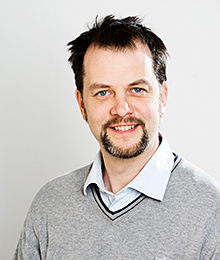STINT-funding to Svante Prado's research project with Brazil
Svante Prado, unit for Economic History at the Department of Economy and Society, School of Business, Economics and Law, has received SEK 663 000 from STINT in research funding. The project, which extends over four years (2015-2019) is a collaboration of four Swedish and three Brazilian researchers. The Swedish researchers are Svante Prado, Erik Bengtsson and Joacim Waara from the Unit for Economic History, University of Gothenburg and Kerstin Enflo from the Department of Economic History, University of Lund. The Brazilian researchers are Renato Perim Coli Tete, Felipe Pereira and Dante Aldrighi from the Universidade de São Paulo (USP).
Area
Society and
economy
